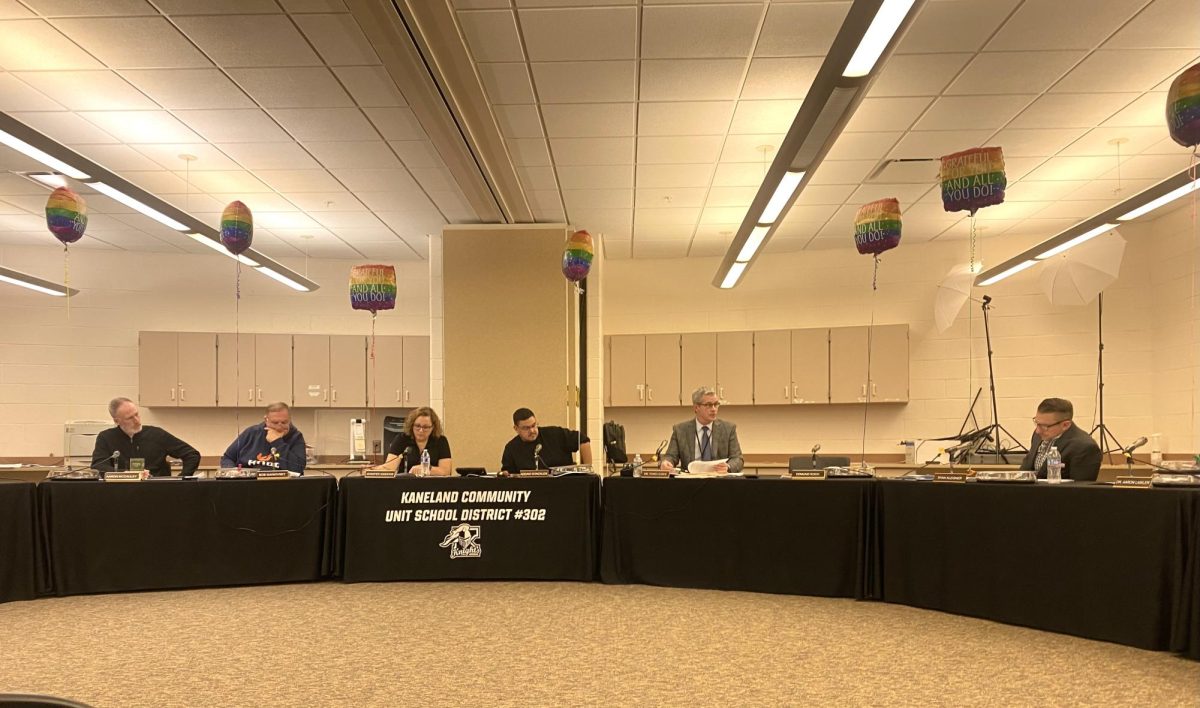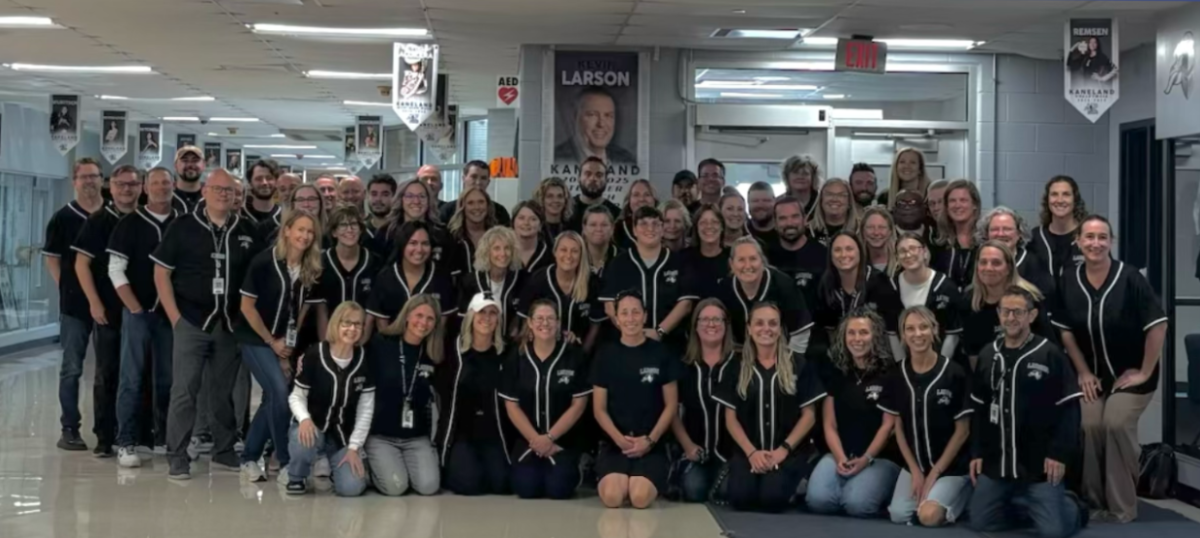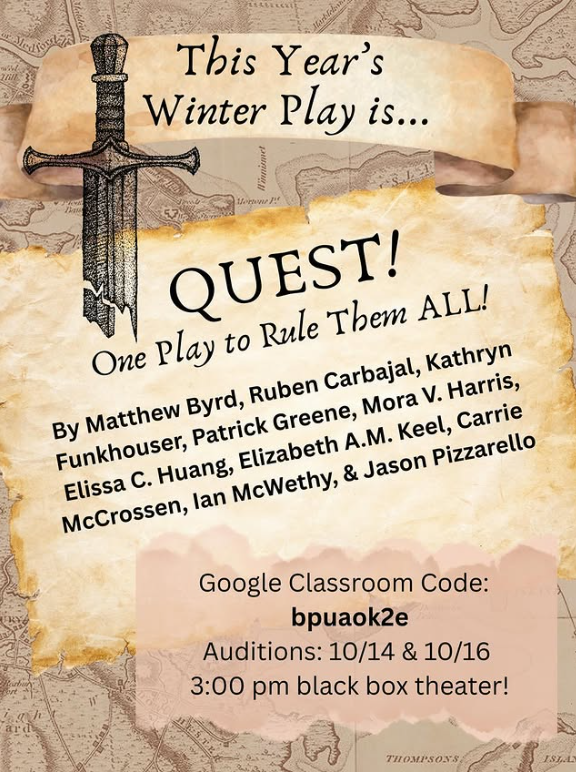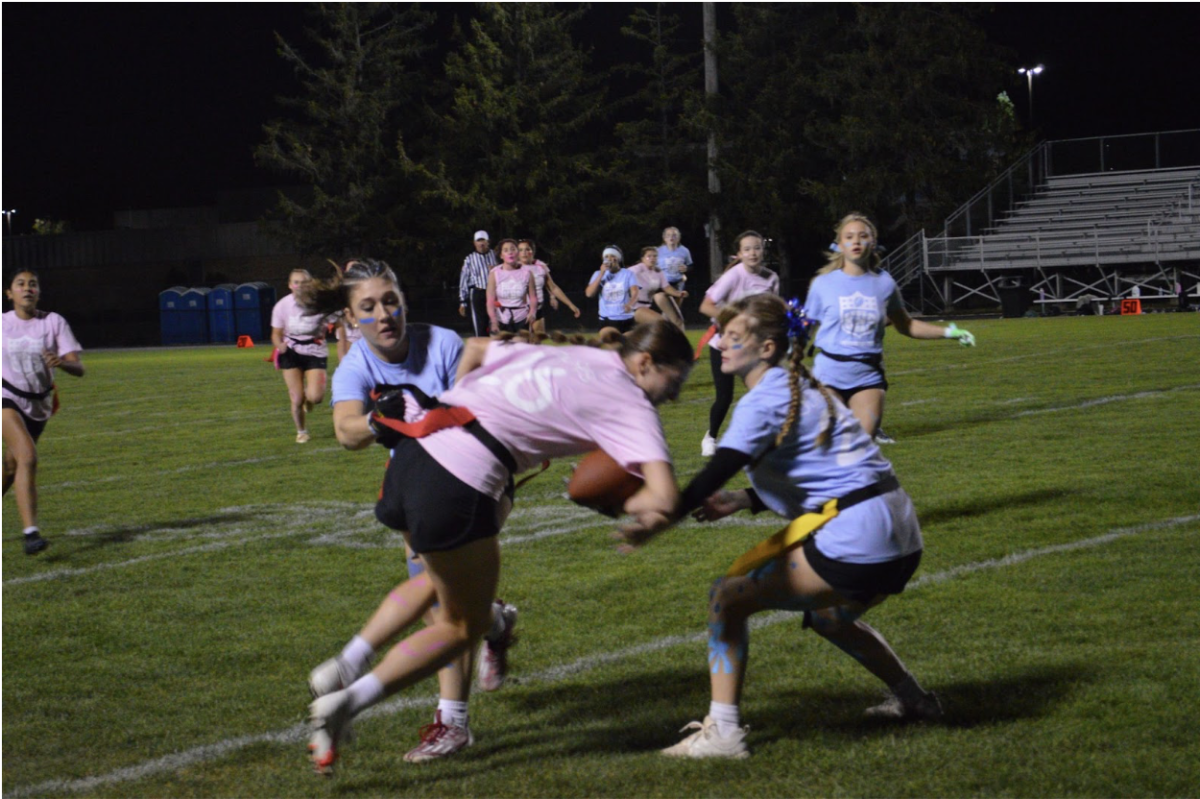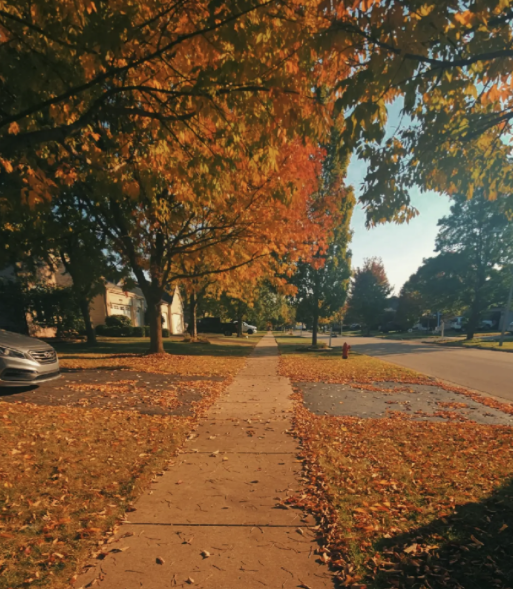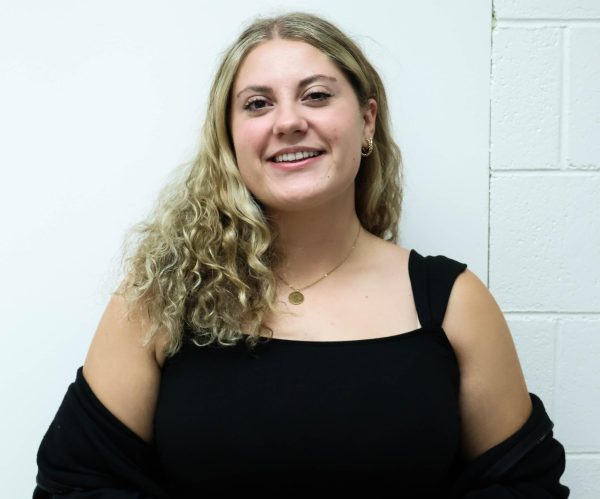On Monday, Nov. 13, Kaneland Community Unit School District 302 hosted its regularly scheduled board meeting at 7 p.m. in the sixth-grade team room at Kaneland Harter Middle School. All board members were present but Edmund Koch.
Following roll call and the Pledge of Allegiance, Superintendent Dr. Todd Leden informed the public that Wednesday, Nov. 15, marks Board Appreciation Night and is being celebrated on this Monday, Nov. 13, since there was a meeting.
As for public comments, the first was by Sugar Grove resident Mike Roskopf, father to two children in the district. His daughter attends the IgKnight Personalized Learning Academy, which he believes has been a great fit for her as she can move at her own pace.
“My daughter claims that she has learned more than she had learned in the first half of fifth grade,” Roskopf said.
The second comment was from Elburn resident Jenine Mehr, who asked teachers about changes they want to see in the schools, which include the dress code at the high school and middle school, cell phone usage during class and how elementary and middle school students should not be allowed to wear hats or hoods. Mehr believes these changes could positively impact a student’s academic performance.
“The percentage of kids at Kaneland, as far as reading and math, all of the important classes and subjects have really fallen, and we have to get them back up. These are things that help promote a better learning environment,” Mehr said.
The first item under new business was the discussion of the Kaneland High School course book for the 2024-25 school year. District Director of Educational Services 6-12 Patrick Raleigh discussed the proposed changes and additions to the coursebook. There are some classes that will sustain the workload but have a slight name change. These name changes involve World History 1 to Ancient World History, World History 2 to Modern World History and Armed Conflicts to History of Armed Conflicts.
“None of the content to these courses will be changed. There is no financial impact, and there are no new textbooks or licenses that are associated with this,” Raleigh said. “[These were created by] working with the professionals that teach these classes [and making sure the] content that is covered best aligns with our course titles.”
Along with name changes to some existing courses, there are proposed new courses as well. In the math department, there are two new courses and an addition to a course already available at Kaneland. One is a semester-long class called Transitions to Quantitative Literacy. This college prep class prepares students for post-secondary math and is a prerequisite for the second class that will be added, Math 101, which is a semester-long dual credit class. Through Kaneland’s partnership with Waubonsee Community College (WCC), the class will be made available to eligible students.
This partnership allows students to take part in these dual credit programs. Advanced Placement (AP) Calculus AB is already offered at Kaneland, but a student can choose to make this course dual credit. The dual credit classes allow students to earn three credit hours that can be applied to college.
If a student decides to take one of the two dual credit courses, the student will become a Waubonsee student and enroll as one. Per WCC policy, they will pay a fee of $36. It is a $12 per credit fee that all students have to pay. There is also a book fee for the Math 101 course, but it is unclear at this point how these fees can be waived.
“I know how free and reduced fees work for the K-12 setting, but I am not sure what that would look like for higher education,” Raleigh said.
Along with dual credit courses, two new science courses were proposed. Food Science is a course where students can learn about food, nutrition and the breakdown of foods through science. This course is similar to the already offered course, Foods and Nutrition one and two. The difference between the two is that Foods and Nutrition is considered a Career and Technical Education (CTE) course, which cannot be used as a science credit, but with Food Science, it will be considered a one-semester science credit. The department is also adding Animal Health and Nutrition, which is a semester-long science course that will work the same way as the Food Science class when it comes to credit. Food Science is predicted to be available every other year, and Animal Health and Nutrition is predicted to be available every year.
Another proposed course is AP Psychology, which is a traditional AP course run through the College Board. It is a full-year course that allows students to go more in-depth with psychology.
The final item that the Board discussed in relation to the school coursebook was the change to two graduation credit policies.
“As we looked at options and experiences for our students, we wanted to make sure if there was a student that had a desire for a specific CTE pathway that we start them in that pathway as early as possible,” Raleigh said.
Instead of having a required semester credit for Applications of Technology, the district proposed to change it so that students can take a .5 credit in any CTE course.
“If you haven’t had a kid take Applications of Technology, this is huge… it’s really frustrating for the kids of this generation because a lot of them use a lot of this [technology],” board member Jennifer Simmons said.
They also are proposing to change the science credit requirements. Currently, the high school requires a semester of next-generation biology, environmental science, chemistry and physics.
“Kaneland is the only school district in the surrounding area that breaks [the science] content into those four specific courses. Every other high school surrounding us has it listed [either] as what we are proposing… or just requires two credits of science. Why this is important is [because of the idea of student pathways],” Raleigh said.
The board approved the Kaneland High School Coursebook with a passing vote of five moved and one abstained.
The next item under new business included the hiring of a new full-time bilingual certified staff member position at Kaneland McDole Elementary School.
“We always continuously monitor our student populations on any requirements they have through special education or bilingual services,” District Director of Human Resources Dr. Chris Adkins said. “There is a school code that requires that if you have a cluster of 20 students or more that speak the same language in a given site, [you have to] provide a bilingual teacher.”
The school is currently at 19 and is ready to start preparing for that time when they hit 20. If they don’t hit 20 or lose students and still get the teacher, that teacher can potentially go to other Kaneland schools and work there.
The board passed this motion with a vote of six to none.
The final item under new business included board member Ryan Kleisner reading the resolutions from the Illinois Association of School Boards (IASB) for the Joint Annual Conference during which he will represent the Kaneland Board of Education on Nov. 18 and 19. He explained how they wouldn’t be voting on whether or not to agree or disagree with the resolution itself but to agree or disagree with the IASB decision to adopt or not adopt the resolution. There were five different resolutions discussed and voted on.
The resolutions they agreed on were industrial construction near schools, school resource officer funding, bus driver regulations to return to how they were in February of 2023 and employment history review. The only resolution they disagreed with was concerning additional funding to be provided for regional alternative safe school programs and state legislature to review SB 100.
Next, senior and student representative Katie Pfotenhauer talked about the start-up of the winter sports season, the Illinois Music Education Association festival and school-related plans before Thanksgiving break and after, like the student blood drive on Dec.15.
The final thing the Board openly discussed was an update on the progress of the search for a new superintendent.
“On November 6, the Board of Education held the first round of superintendent interviews at Kaneland Harter Middle School. The interview teams were made up of 30 Kaneland community members, including board members, staff, parents and students,” Board President Addam Gonzales said. “We appreciate [all the] participation in the superintendent search.”
The next Board Meeting will be held on Monday, Nov. 27.


